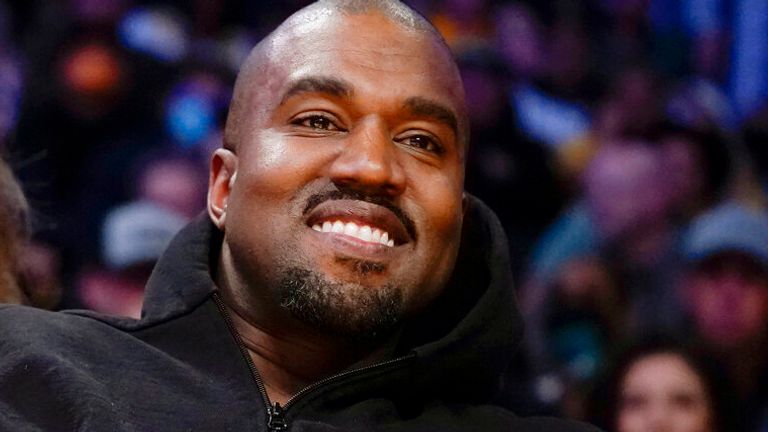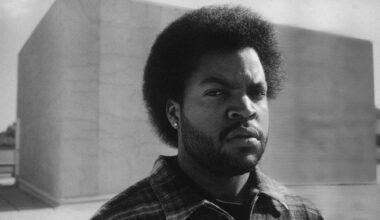The wheels have finally come off the Kanye West rollercoaster. In truth, it was a wild ride that had been tempting this crashing fate for a farcical eternity. After years of portents, it would seem that Donda was the tipping point when ‘antics’ overtook artistry—they’ve been growing more nettlesome ever since. Music legend Todd Rundgren was brought in as a producer for the ill-fated album and he offered a clear warning about the waning ways of the wayward Mr West.
“There is so much junk on there,” Rundgren scathingly told Ultimate Classic Rock at the time, “I have three albums worth of Kanye stems on my computer. Because I kept getting called by Kanye to add vocals onto the record.” This slew of trash began to pile-up in Rundgren’s inbox as West frantically threw the kitchen sink at the project, and this time possibly not in the proverbial sense. He was just continually gunning to outdo himself and ultimately this had very little to do with artistic integrity. As Rundgren concluded, “he’s a shoe designer… He’s just a dilettante at this point. Nobody would regularly make records like that unless they had stupid money to throw around.”
For West, this move finally backfired. After months of fanfare, the album eventually centred around a live show involving him gathering a slew of ‘cancelled’ stars on stage. These included Marilyn Manson who is currently facing court proceedings regarding rape allegations and DaBaby, who at the time was facing backlash after making homophobic remarks. At best, the philosophy behind this artistic gesture was confused and misguided, at worst it was purposefully damaging. I’d venture that the intervening months prove that it was the latter.
While the argument that the rapping presidential candidate was trying to make is indecipherable owing to an unclear mantra on his part, the intent was about as subtle as a policeman’s knock. In the internet era, controversy generates attention like no other engine of interest and cramming a show full of talking points was a platform to prove this. Naturally, any release by West would attract some media attention, but it would be naïve to think that any artist believes themselves to be infallible from fading. Moreover, West is clearly far from the sort to retire into the hills with his millions.
Now that this whole thing has reached a head, it is important to learn how West went from a revered artist to a racist “shoe designer”. After all, his current disgraced status might seem unprecedented but the whole fiasco illuminates a troublesome underpinning trend in modern music. Social media has spiralled wildly in the last decade and its full impact on art is now being felt.
You see, there was method to the madness that resulted in Rundgren turning his back on Donda as more bricks were piled into the building without any plan for the roof. And the method was this: the more people you have on board, the more reach you have with an album. Donda was essentially musical networking.
At this stage, West clearly thought that the idea of making a great album in a true veritable sense was almost immaterial. The record came down to putting on a show—in the end, literally. “They hurriedly wrapped the whole thing up and put out what is obviously really raw, unprocessed stuff,” Rundgren explains. “It’s because Drake was running the whole process. He was too afraid that Drake would one-up him, so he hurried up and released the album the weekend before Drake could get his out.”
On the surface, this is nothing new. The Beatles and The Beach Boys were in an unspoken race when it came to pushing the world into a new realm of stereo-sound with Sgt. Pepper’s Lonely Hearts Club Band and the ill-fated second-placed Smiley Smile. But that really was pioneering work—the goal was to thrust a flag into a new summit of artistry, whereas West’s album, Donda, is already a musical moot point and now simply stands as a pivotal moment amid a troubling downfall. Reviews for the record were universally middling and the fanfare is now long forgotten as his new follies come to the fore like a daily feed of subversive absurdity.
The album highlighted that his musical virtues had been misplaced amid a rampant penchant for courting invigorating controversy. After all, fanfare is one thing, but Donda’s launch party was no ordinary publicity push—it was wildly incendiary. Seeing as though current social media algorithms favour high-arousal emotions like rage or anger, because it keeps people engaged for longer, it made sense for West to rock the boat with names that were drawing the most attention regardless of whether it was negative. This is a true paradigm of the old ‘all publicity being good publicity’ adage.
By this stage, musicology, for the most part, had slipped into second place for West and shareability had taken the reigns. Although we now see the insidious result of this, the slide is more understandable when looked at from afar. As Nick Cave once said: “Making art is a form of madness – we slip deep within our own singular vision and become lost to it. There is no musician on Earth that is as committed to their own derangement as Kanye, and in this respect, at this point in time, he is our greatest artist.”
However, when art leaves the picture, that simply leaves you committed to your own derangement. In daring to date controversy and being rewarded for it, West saw how liberating it can be to pursue your own singular vision. With a mountain of money, a level of esteem that meant he had to answer to nobody, and personal circumstances pulling him away from music, he could begin playing his own little games with the increasingly libertarian world of the internet. He was, in essence, free to fool around and reap the trending rewards.
This sense of feeling liberated enough to turn the invasive press upon its head and dangle it on the end of your own strings is apparent among many great artists. The maestro Bob Dylan just recently placed a dedication in his book to Dunkin Donuts. “(I thanked) the ‘crew from Dunkin’ Donuts’ because they were compassionate, supportive and they went the extra mile,” Dylan said with a wry smile that wasn’t detected by much of the media who can’t see past the reverence to detect the quirky human underneath it. There was a time when the same could be said for West, when his brand of self-liberating absurdity was equally harmless.
The difference is that Dylan’s own virtues are intact having evaded the pitfall of press-driven derangement for the most part, and the bulk of his promotional life came before being incendiary was literally algorithmically rewarded in an increasingly volatile market(ing)place where the human cost is often forgotten. It would seem that this is where West has truly gone wrong. Forgetting artistry and the grounding moral virtues that come along with it. In the words of Nick Cave, if “making art is a form of madness” then what happens when the art leaves the picture, but you’re still committed to delving into that derangement? When you’re still searching for the buzz of publicity with nothing to push?
This is a self-serving fix for those generating it. If West isn’t doing something radical, then where does he stand? Would he be a mere shoe designer who faded from daring heights towards the plashy mire of commerciality? His downfall might seem mind-bending, but frankly, it has been a self-fulfilling prophecy for a while now. And it’s our own online hysteria that has fed into it.






